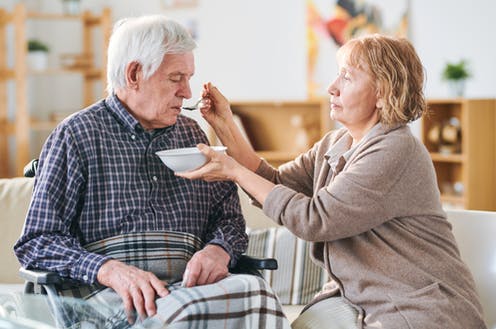Two doctors describe working on the frontline of Liverpool’s second wave – In Depth Out Loud podcast
This episode of The Conversation’s In Depth Out Loud podcast features a report from two doctors on the frontline of the second wave of coronavirus in Liverpool. Tom Wingfield, an infectious diseases physician at Liverpool School of Tropical Medicine and the University of Liverpool, and Miriam Taegtmeyer, professor of global health at Liverpool School of Tropical Medicine, describe what it’s like for healthcare workers who continue to put their lives and those of their families on the line. They describe arriving at work to face daily, sometimes dangerous, staff shortages but also seeing the inherent resourcefulness of NHS healthcare workers. Some specialist colleagues have expanded their care to cover or lead COVID-19 wards. Other hospital doctors have “upskilled” to lookContinue Reading



















